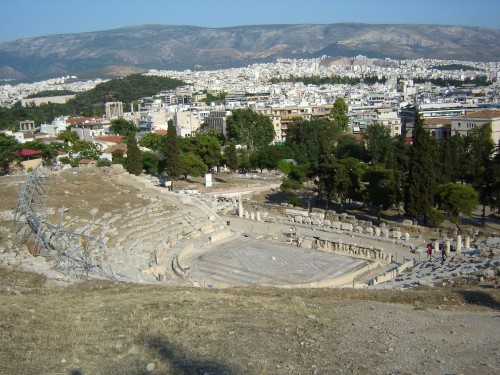Ancient Greek plays offer us an insight into the climate of the time, according to the University of Athens. Researchers thoroughly checked historical observations from 43 plays by Aeschylus, Sophocles, Euripides and Aristophanes for their references to weather. Notably, scientist looked for ‘halcyon days’, days of theatre-friendly weather in mid-winter. On these days, the weather conditions enabled Athenians to play and watch live performances in midwinter, in open theaters. Halcyon days, the sunny, clear days during winter were especially loved by the Athenians.
These plays from the 5th and 4th centuries BC gives us a valuable insight into the Mediterranean climate of the time. In this golden age, Athenians would watch plays in the open theatre of Dionysus, near the Acropolis. Since the plays often speak of a halcyon day, and references from the dramas about the clear weather and mild winters, it is assumable that there were many summery days in January in the 5th and 4th century BC.
More information: Heritage daily

Leave a Reply